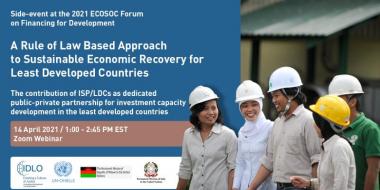Judicial Capacity Building on the New Armenian Code of Civil Procedure
In April 2018, the Republic of Armenia adopted a new version of the Civil Procedure Code with the aim to expedite cases and increase the efficiency of civil courts. As in most transition countries, implementation of the law by courts and officials is weak and uneven. The judiciary needs to become familiarized with the new Civil Procedure Code and its application within a limited timeframe. Hence, it is critical that judges have a firm grasp of the newly adopted rules, especially related to commercial disputes.













